Agora as esponjas podem ser destinadas para reciclagem em supermercados de todo o Brasil!
3M e Makro instalaram pontos de coleta.
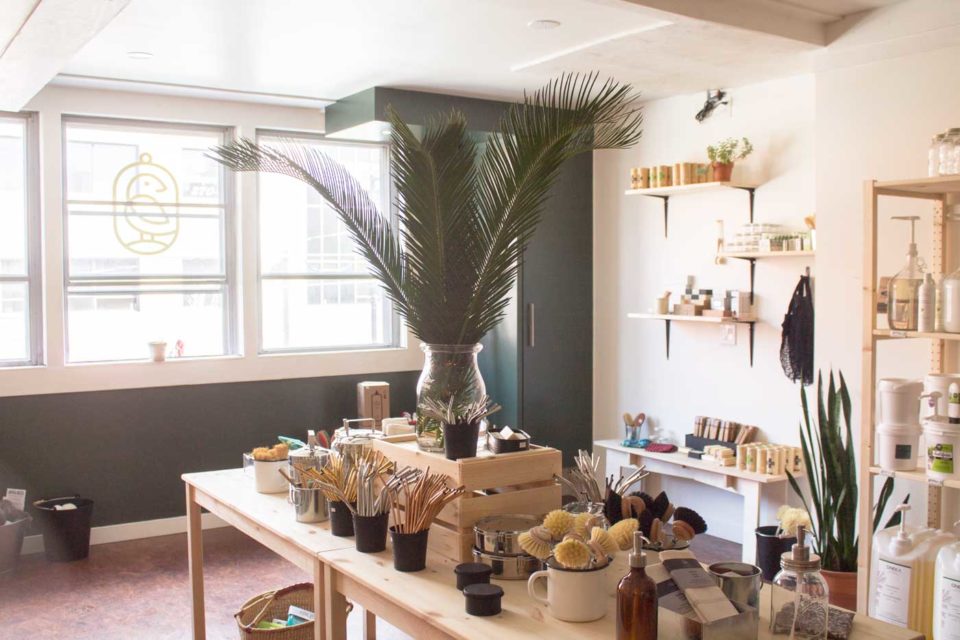 From the launch of the Calgary Composting Facility in 2017 to the more recent push to get rid of plastic straws in local restaurants, more and more Calgarians have environmental issues on the brain. Canary, a new refillery and zero waste market in Kensington, is the latest addition to that conversation in Calgary.
Launched by longtime friends Tara Meyer and Lisa Watts, Canary specializes in sustainable, plastic-free lifestyle products. Most of the store’s products are package-free and the rest come in recyclable/compostable packaging. There are blocks of Savon de Marseille soaps, shampoo and conditioner bars, Ziploc bag alternatives like reusable Stasher bags, dryer balls, sustainable brushes, stainless steel straws, bamboo toothbrushes and more.
Canary also has a refillery section where containers can be filled (and later refilled) with things like shampoo, conditioner, shower gel, bubble bath, lotion, deodorant, hairspray and toothpaste.
While many of Canary’s customers are already familiar with the idea of zero waste and sustainable products, others are discovering just how many sustainable options are out there for the first time. The goal, Meyer says, was to create a space where people could easily discover and access environmentally friendly products and start thinking about how they can make a difference in small ways.
“We’re simply hoping that people might start thinking about [things like] what’s one thing I can switch out that’s an easy swap to make? Like maybe this month, when my razors run out, I’m going to think about getting a metal razor and see how that goes. And if I like that, great. That’s one thing you’ve done and one less thing that goes to landfill,” Meyer says.
“When lots of people do little things like that, it really does add up.”
1223 Kensington Rd., canarygoods.ca
From the launch of the Calgary Composting Facility in 2017 to the more recent push to get rid of plastic straws in local restaurants, more and more Calgarians have environmental issues on the brain. Canary, a new refillery and zero waste market in Kensington, is the latest addition to that conversation in Calgary.
Launched by longtime friends Tara Meyer and Lisa Watts, Canary specializes in sustainable, plastic-free lifestyle products. Most of the store’s products are package-free and the rest come in recyclable/compostable packaging. There are blocks of Savon de Marseille soaps, shampoo and conditioner bars, Ziploc bag alternatives like reusable Stasher bags, dryer balls, sustainable brushes, stainless steel straws, bamboo toothbrushes and more.
Canary also has a refillery section where containers can be filled (and later refilled) with things like shampoo, conditioner, shower gel, bubble bath, lotion, deodorant, hairspray and toothpaste.
While many of Canary’s customers are already familiar with the idea of zero waste and sustainable products, others are discovering just how many sustainable options are out there for the first time. The goal, Meyer says, was to create a space where people could easily discover and access environmentally friendly products and start thinking about how they can make a difference in small ways.
“We’re simply hoping that people might start thinking about [things like] what’s one thing I can switch out that’s an easy swap to make? Like maybe this month, when my razors run out, I’m going to think about getting a metal razor and see how that goes. And if I like that, great. That’s one thing you’ve done and one less thing that goes to landfill,” Meyer says.
“When lots of people do little things like that, it really does add up.”
1223 Kensington Rd., canarygoods.ca
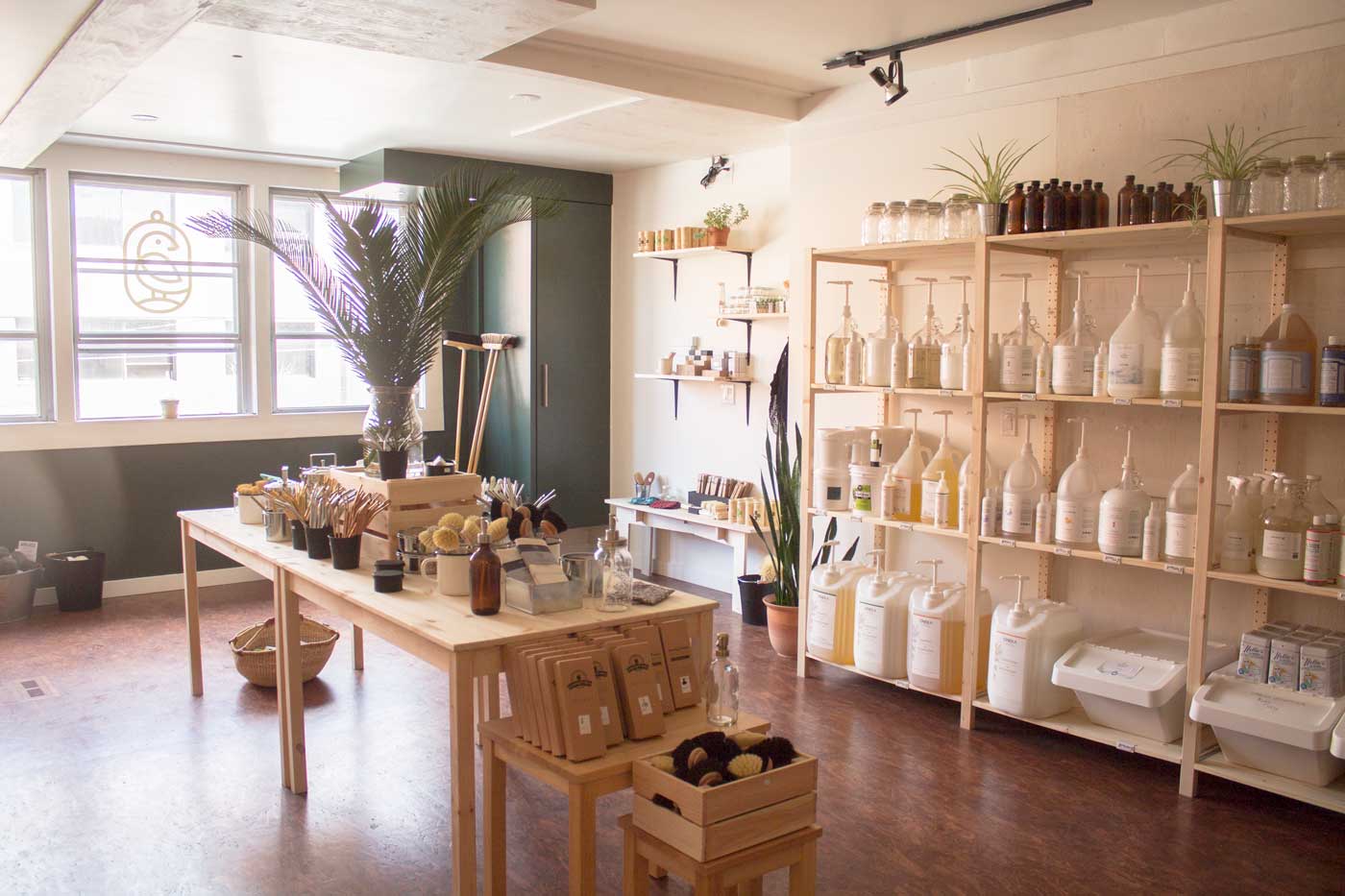
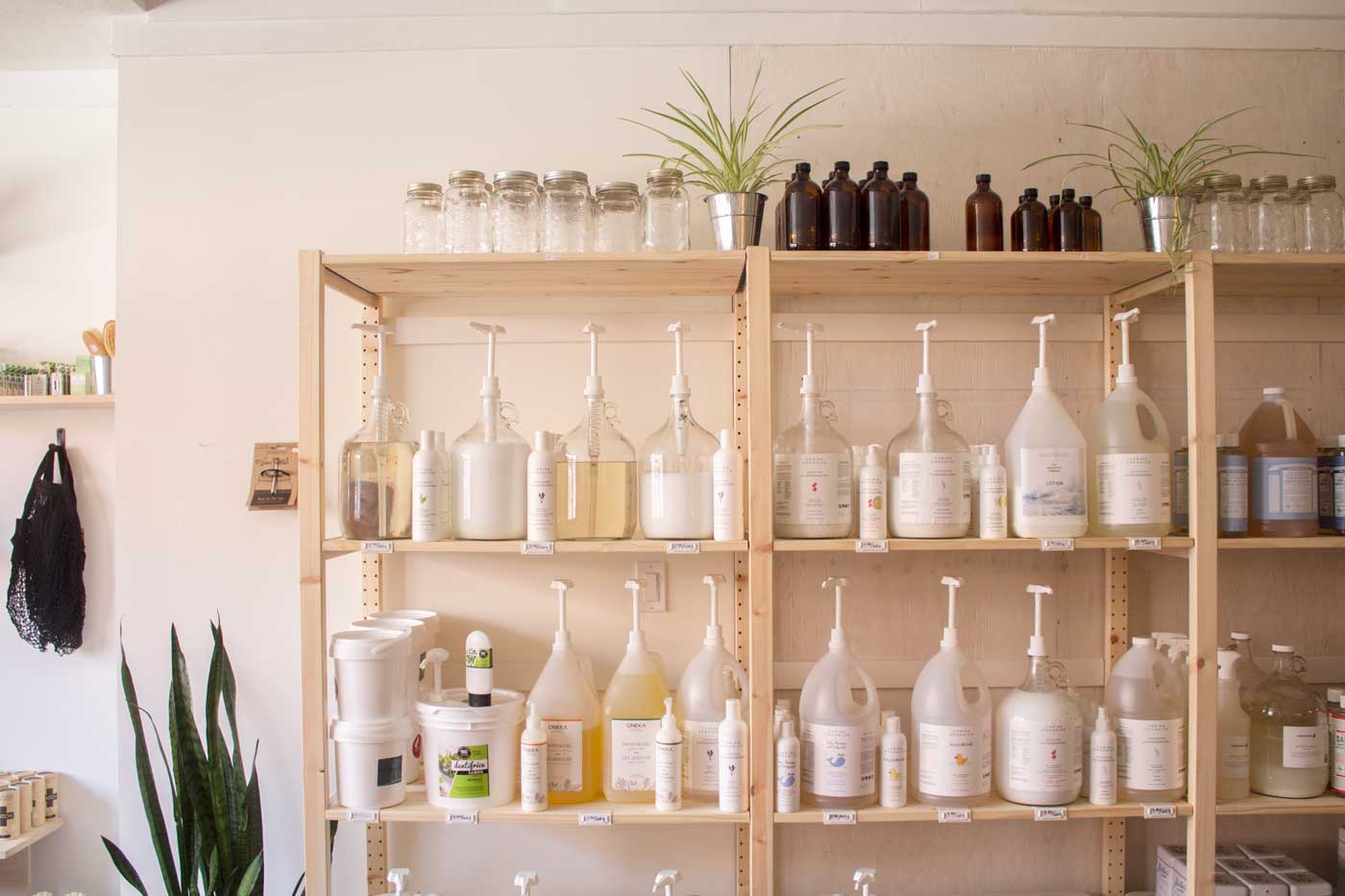 Canary carries a selection of refillable products, including cleaning vinegar, dish soap, lotion and all-purpose cleaner from The Unscented Company, shampoo, conditioner, body wash, bubble bath and hairspray from Carina Organics, mint toothpaste from Rose Citron, Routine deodorant and more. Shoppers can bring in a container to fill, grab a free used container from Canary (such as an old shampoo bottle) or buy a Boston round or mason jar to fill. All the refillable products are priced by weight.
Canary carries a selection of refillable products, including cleaning vinegar, dish soap, lotion and all-purpose cleaner from The Unscented Company, shampoo, conditioner, body wash, bubble bath and hairspray from Carina Organics, mint toothpaste from Rose Citron, Routine deodorant and more. Shoppers can bring in a container to fill, grab a free used container from Canary (such as an old shampoo bottle) or buy a Boston round or mason jar to fill. All the refillable products are priced by weight.
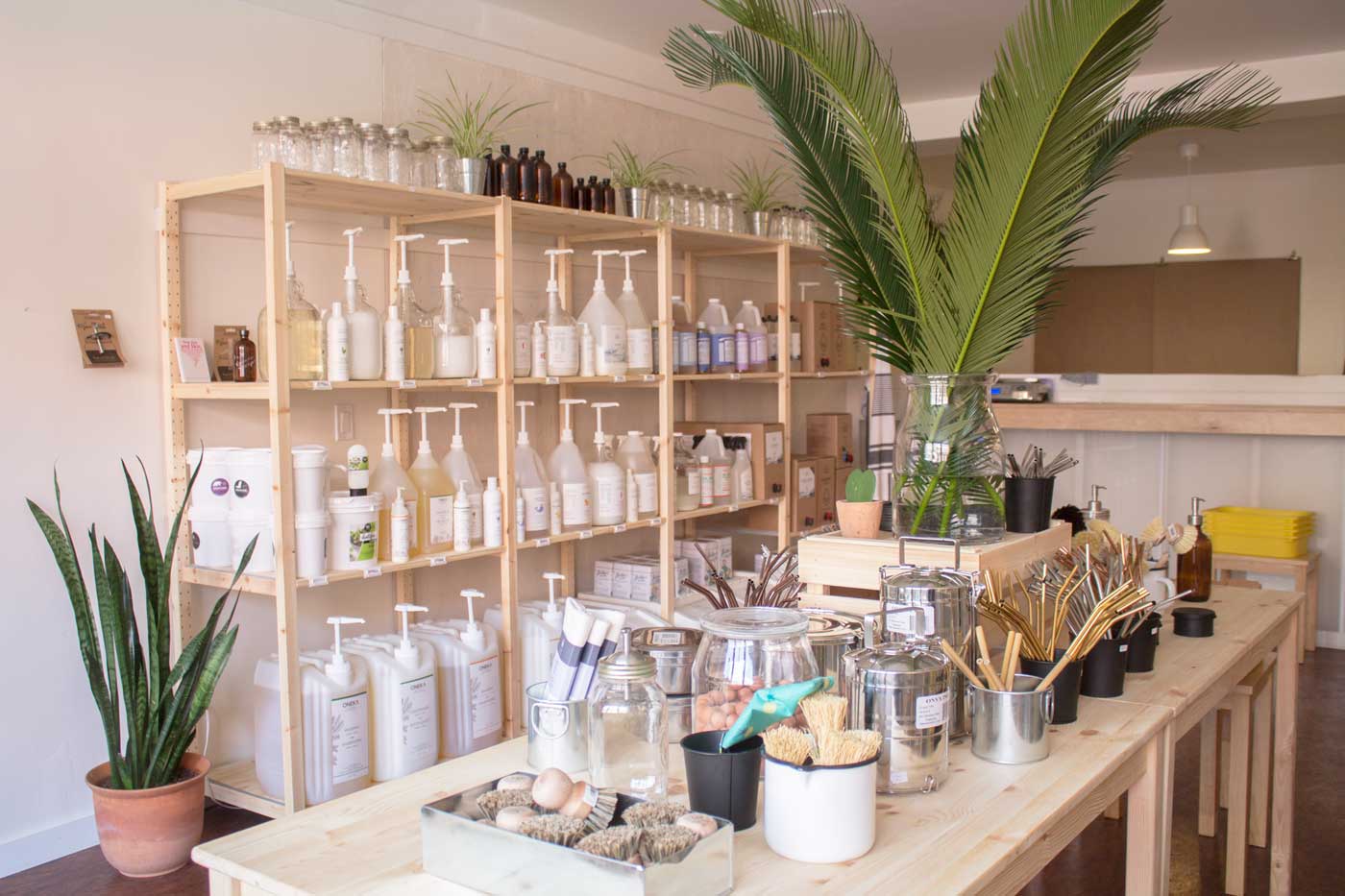
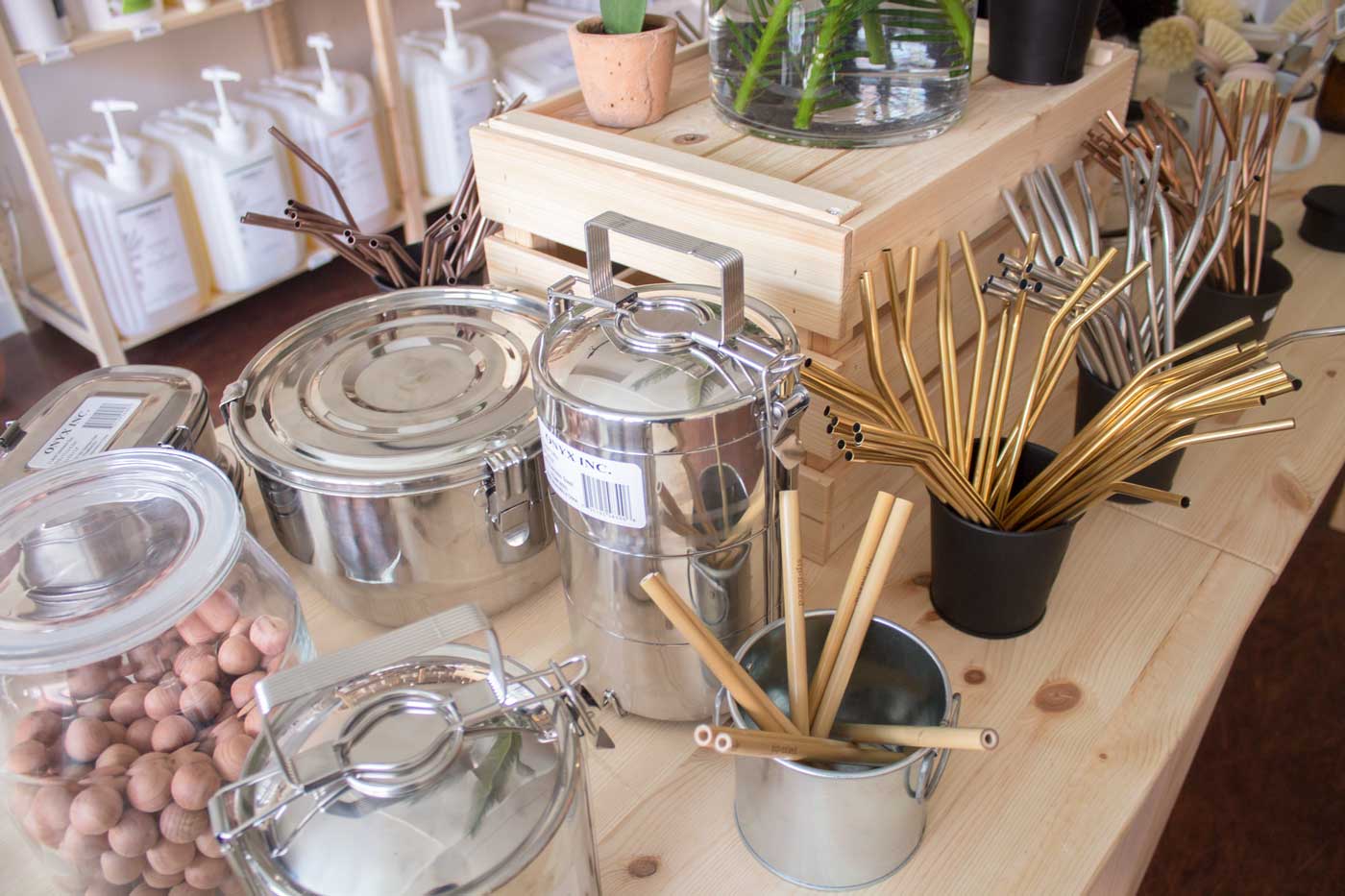 German company Burstenhaus Redecker makes these compostable feather dusters, brooms, toilet brushes and dish brushes with natural bristles.
German company Burstenhaus Redecker makes these compostable feather dusters, brooms, toilet brushes and dish brushes with natural bristles.
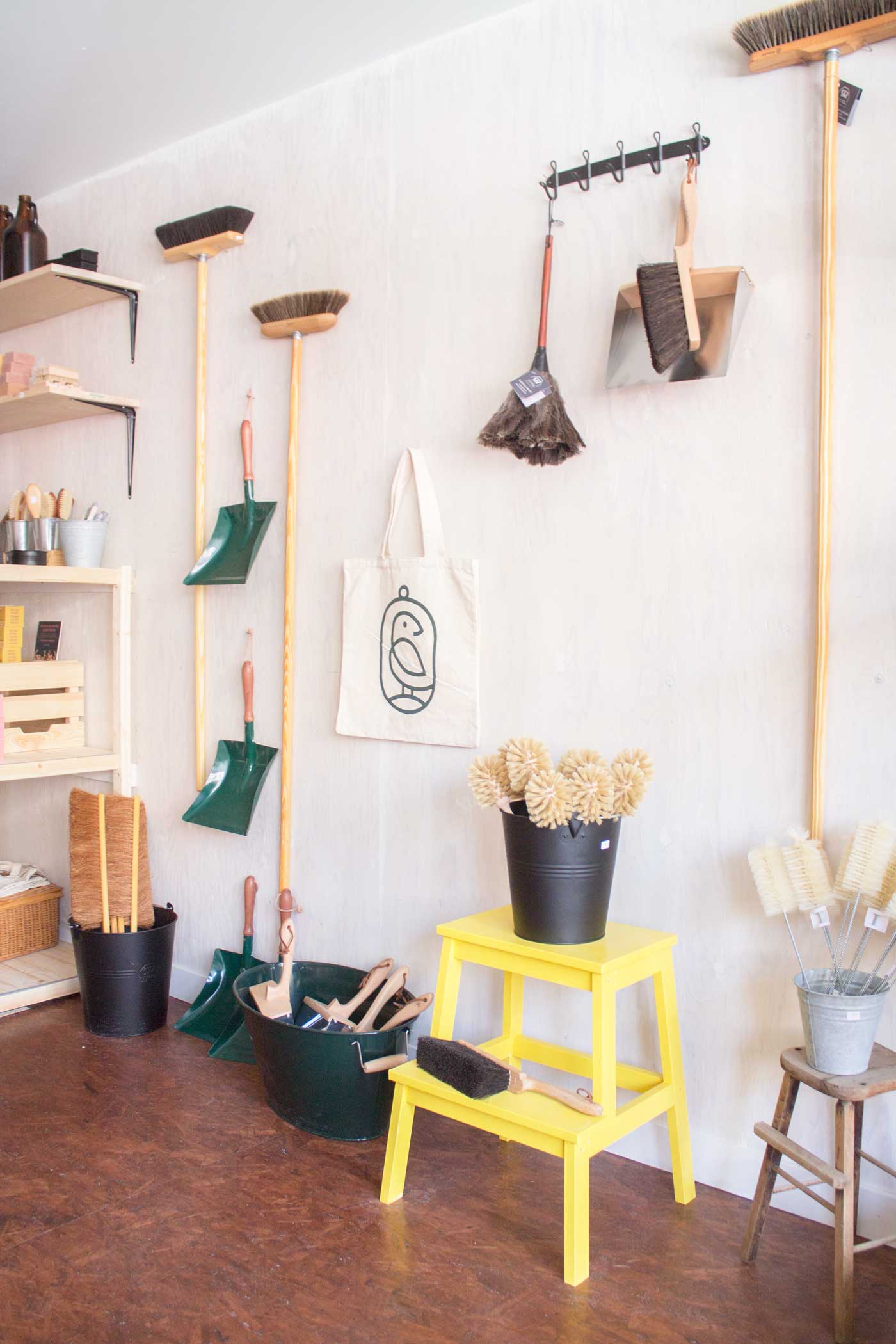 Looking for an alternative to plastic wrap? Try this beeswax food wrap from Abeego, which Meyer says have “the perfect amount of stick, but [aren’t] too sticky.”
Looking for an alternative to plastic wrap? Try this beeswax food wrap from Abeego, which Meyer says have “the perfect amount of stick, but [aren’t] too sticky.”
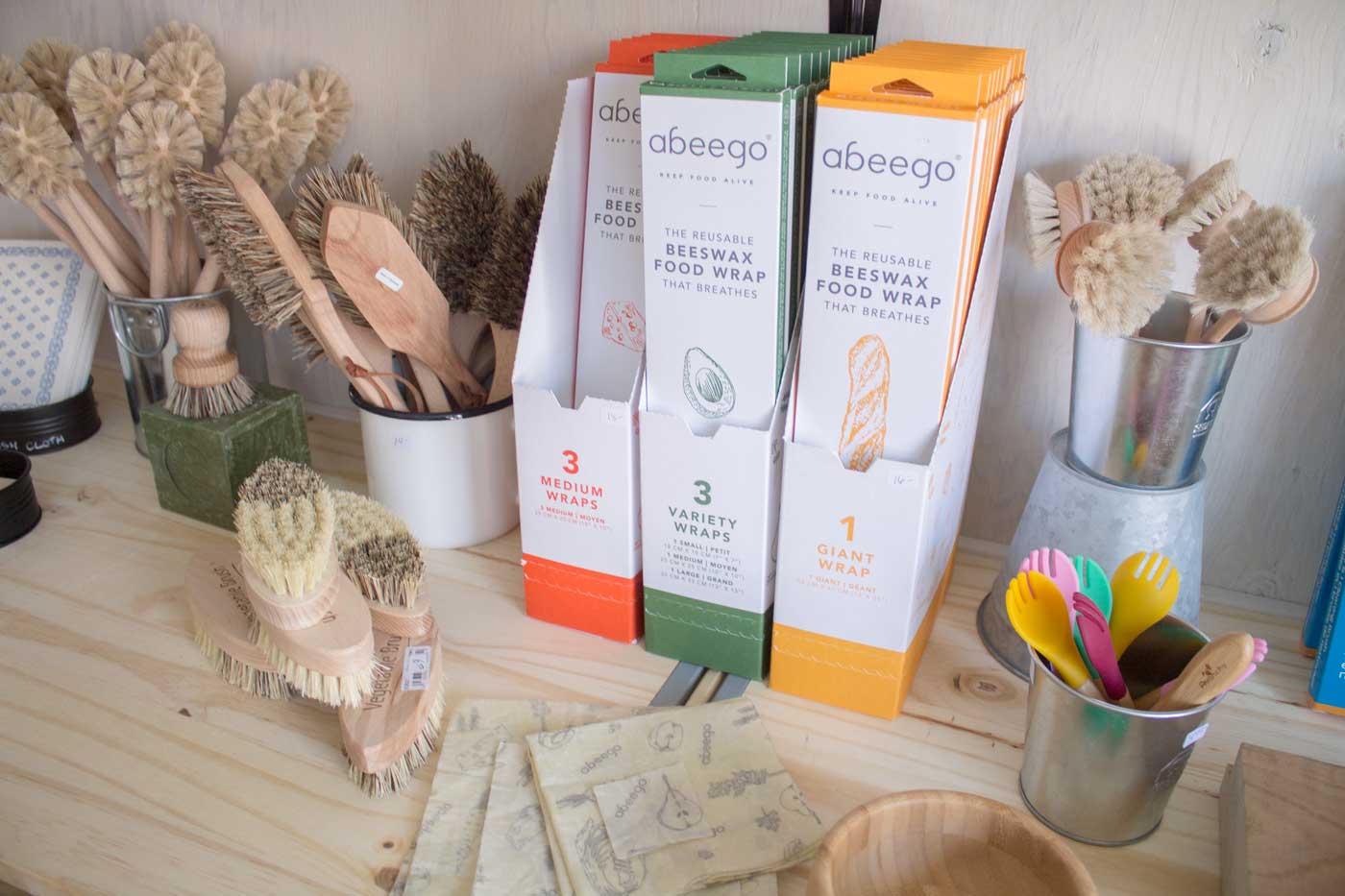 This natural toothpaste from American company Davids comes in a metal tube that can be recycled when it’s empty. Canary also has Brushed Naked bamboo toothbrushes that can ultimately be recycled and composted. If you’re looking to transition from plastic toothbrushes to more sustainable ones, Canary has a TerraCycle recycling box in-store where customers can dispose of their old ones.
This natural toothpaste from American company Davids comes in a metal tube that can be recycled when it’s empty. Canary also has Brushed Naked bamboo toothbrushes that can ultimately be recycled and composted. If you’re looking to transition from plastic toothbrushes to more sustainable ones, Canary has a TerraCycle recycling box in-store where customers can dispose of their old ones.
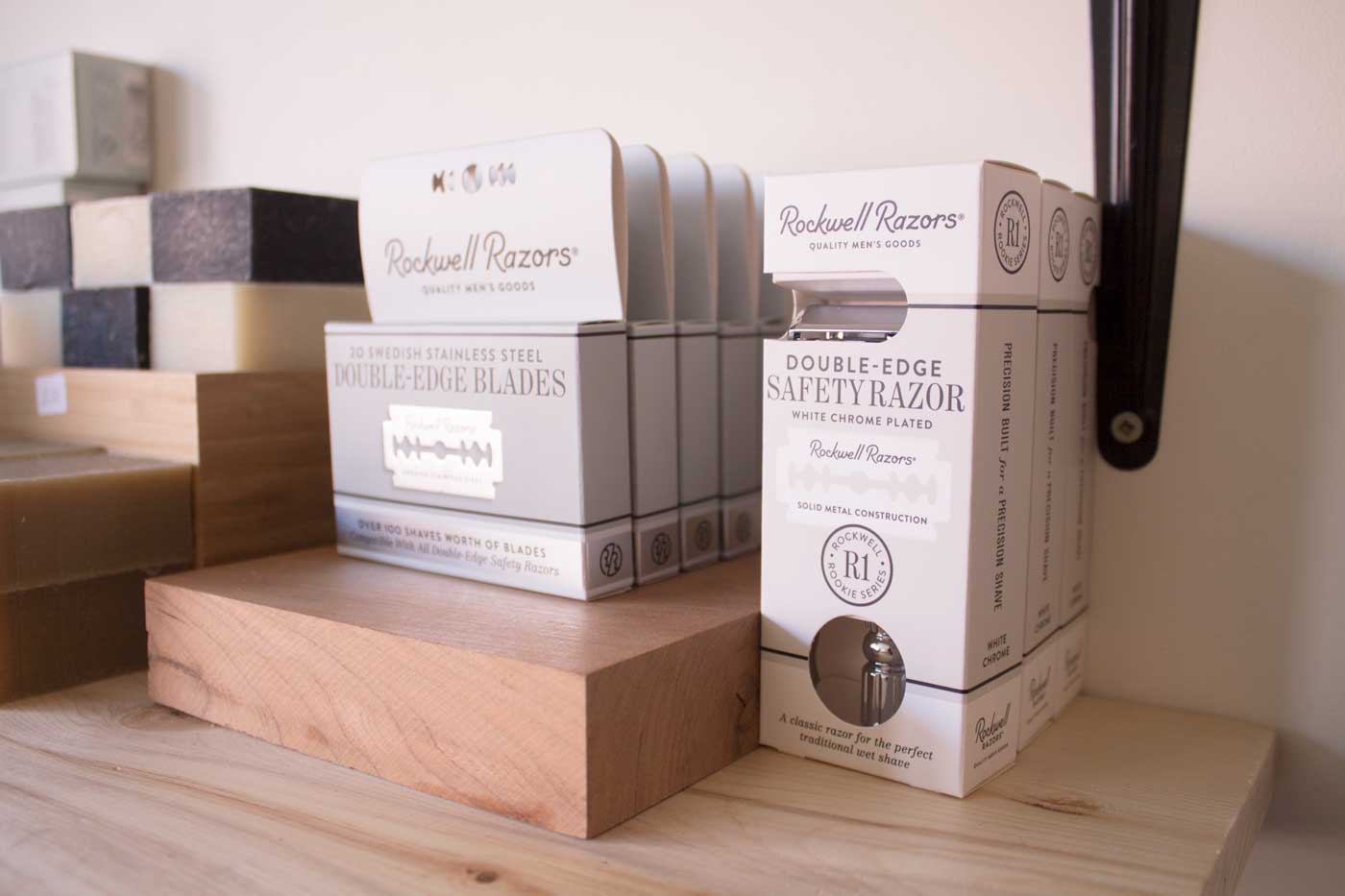 Canary carries safety razors with replaceable stainless steel blades. When customers are done with the used blades, they can bring them back to Canary to be recycled with a local metal recycler.
Canary carries safety razors with replaceable stainless steel blades. When customers are done with the used blades, they can bring them back to Canary to be recycled with a local metal recycler.
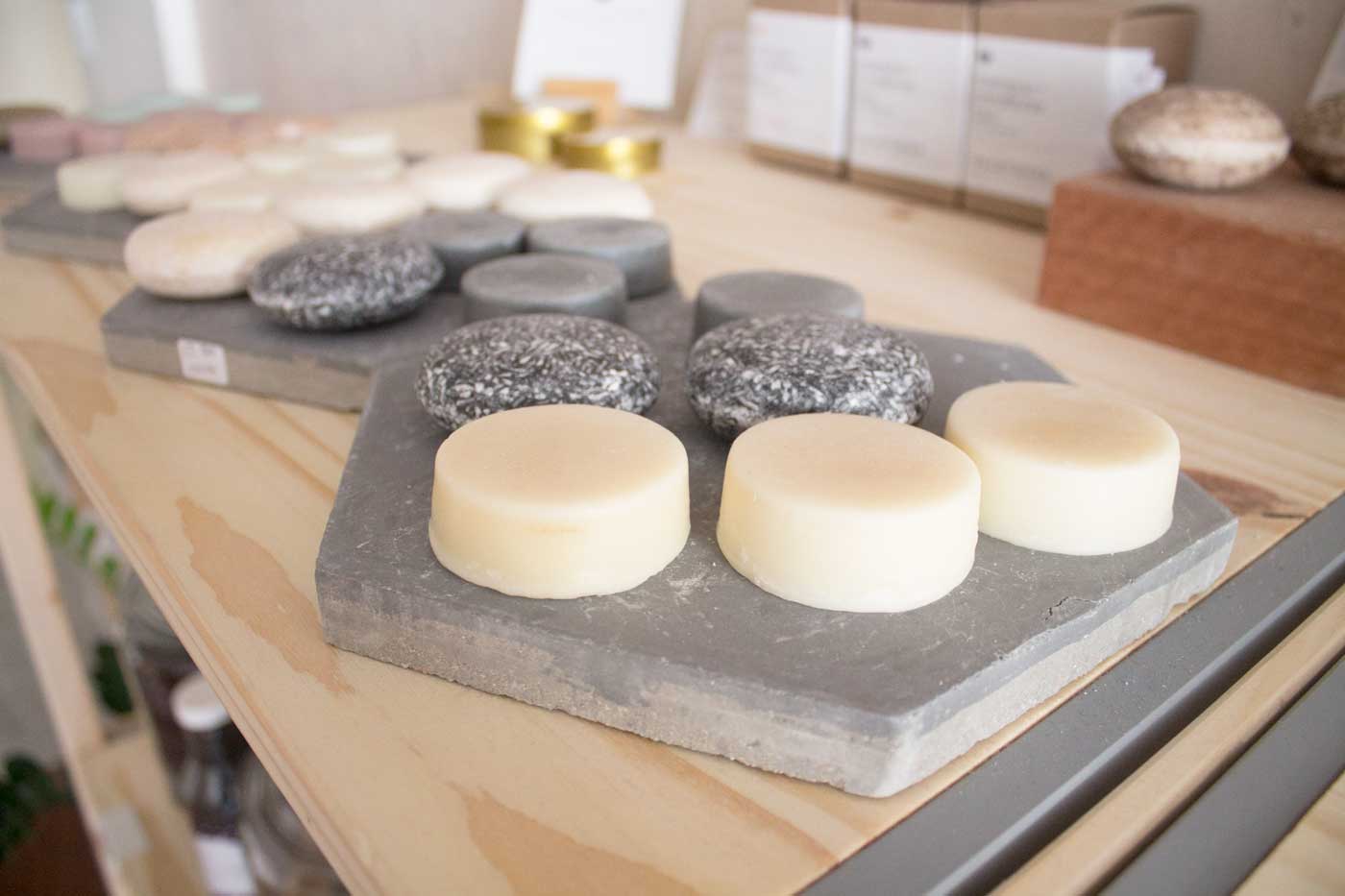
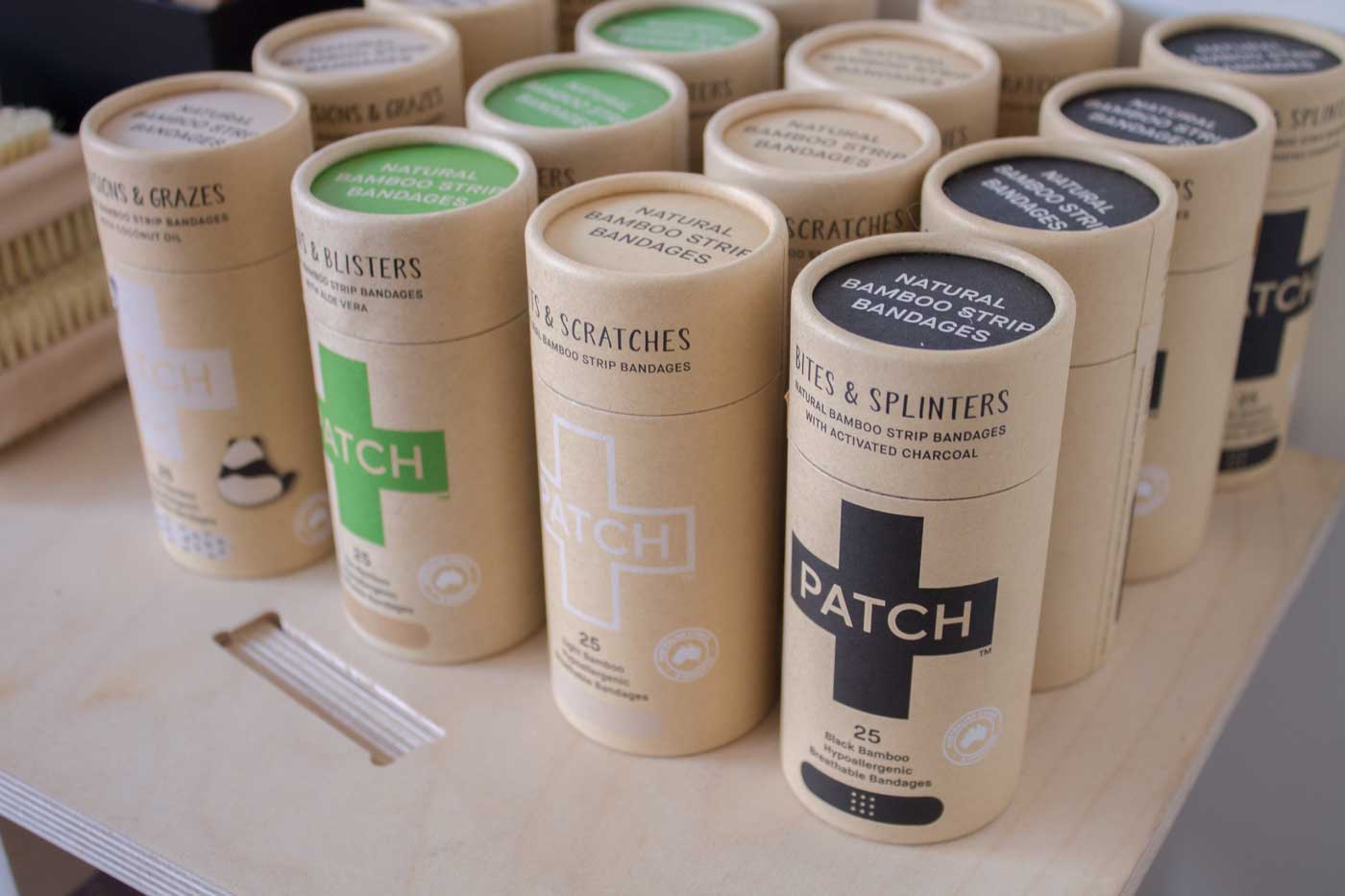 There’s even a sustainable option for bandages — Australian company Patch makes plastic-free (and beautifully designed) bamboo bandages that can be composted.
If you don’t want to to go with liquid shampoo and conditioner, Canary has zero waste shampoo and conditioner bars from Calgary company Unwrapped Life
There’s even a sustainable option for bandages — Australian company Patch makes plastic-free (and beautifully designed) bamboo bandages that can be composted.
If you don’t want to to go with liquid shampoo and conditioner, Canary has zero waste shampoo and conditioner bars from Calgary company Unwrapped Life